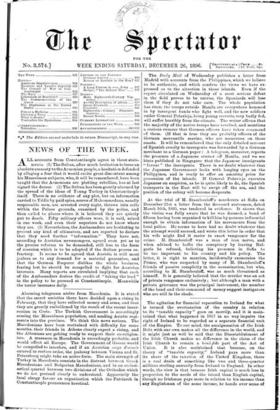The agitation for financial reparation to Ireland for what is
termed the overtaxation of the country in relation to its "taxable capacity" goes on merrily, and it is main- tained that what happened in 1817 in no way impairs the right of Ireland to be regarded as a separate financial unit of the Empire. To our mind, the amalgamation of the Irish Debt with our own makes all the difference in the world, and it might just as well be said that the Disestablishment of the Irish Church makes no difference in the claim of the Irish Church to remain a bona fade part of the Act of Union. It is also maintained that because, on the theory of "taxable capacity," Ireland pays more than its share of the taxation of the United Kingdom, there is a real drain of something like two and three-quarter millions sterling annually from Ireland to England. In other words, the view is that because Irish capital is much less in proportion to the needs of the island than English capital, though no Irishman pays more in relation to his income than any Englishman of the same income, he hands over some of
his taxation to the richer country. If so, every Wiltshire citizen, and every Suffolk and Norfolk citizen, and every Cumbrian and every Highland crofter, is drained by the richer counties and towns of Great Britain in the same way. On what conceivable principle can the finance of the United Kingdom be so arranged that the poorer sections of the country shall not be drained of capital for the benefit of the richer sections, if the mere fact that they have not so much capital in proportion to their area, can be said to involve a drain from the poorer to the richer areas ?



































